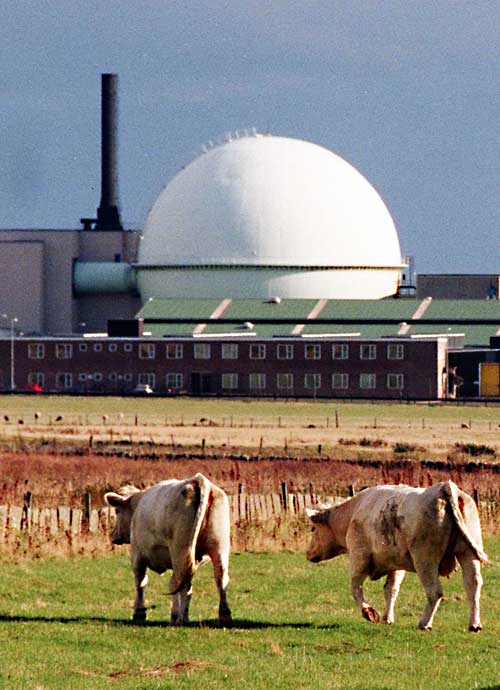Nuclear clean-up bill £12bn higher than predicted

Your support helps us to tell the story
From reproductive rights to climate change to Big Tech, The Independent is on the ground when the story is developing. Whether it's investigating the financials of Elon Musk's pro-Trump PAC or producing our latest documentary, 'The A Word', which shines a light on the American women fighting for reproductive rights, we know how important it is to parse out the facts from the messaging.
At such a critical moment in US history, we need reporters on the ground. Your donation allows us to keep sending journalists to speak to both sides of the story.
The Independent is trusted by Americans across the entire political spectrum. And unlike many other quality news outlets, we choose not to lock Americans out of our reporting and analysis with paywalls. We believe quality journalism should be available to everyone, paid for by those who can afford it.
Your support makes all the difference.Decommissioning Britain's growing radioactive waste mountain is likely to cost the taxpayer £12bn more than previous highest estimates, raising fresh questions about the expense of the new generation of nuclear power stations.
Environmental campaigners and Tory MPs said the costs of decommissioning – likely to reach £73bn - were now "out of control". They called for an urgent clean-up at the Sellafield recycling plant in Cumbria after the report by the public spending watchdog, the National Audit Office (NAO).
The NAO reported that decommissioning costs for the existing 19 nuclear plants had risen by 18 per cent – about £11.7bn between 2005 and 2007 – and are expected to reach £73bn but could go higher. Part of the reason for the rise is that previous plans failed to include the cost of cleaning up the ponds and silos at Sellafield, and the method of decommissioning was changed from manual to remotely operated work to reduce risks to staff.
"Today's report reveals the staggering cost of trying to safeguard Britain's growing mountain of radioactive waste," said Neil Crumpton, a Friends of the Earth campaigner. "And it's the taxpayer who will have to foot the bill. We can meet our energy needs and combat climate change without building new reactors.
"The Government should invest in clean safe renewable power, energy efficiency and low-carbon technology, rather than adding to a nuclear legacy that we still don't know what to do with."
The Government is still pondering the best way to store future waste but has been advised that deep storage under the sea is probably the safest method. The cost of building new storage facilities is not included in the latest estimates.
Edward Leigh, the Tory chairman of the Public Accounts Committee, which will investigate the figures, said: "It is particularly worrying that cost estimates for work about to begin are still on the rise." He warned that the taxpayer was facing higher costs because of the "start and stop" nature of the work at some of the sites.
A member of his committee, the Tory MP Richard Bacon, said the cost of cleaning up the UK's first nuclear reactors was "running out of control". He said problems encountered in cleaning up the Sellafield recycling plant were proving "toxic" for the decommissioning authority's finances, disrupting work at other sites and creating additional costs for the taxpayer. He added: "The authority needs to reduce the pressure the work at Sellafield is putting on its operations by cleaning up Sellafield as a matter of priority".
The authority said the increase in costs partly reflected "a more complete assessment of the range of work that needs to be taken forward, including the action necessary to address hazards at some of the legacy facilities at Sellafield.
"Our analysis of the plans also indicates, however, that cost estimates on work expected to be undertaken in the near to medium-term, which might be expected to have stabilised by now, have risen significantly. Between 2005 and 2007, the estimate of likely costs for the first five year period covered by those plans in a consistent manner – April 2008 to March 2013 – rose by 41 per cent."
A growing proportion of the UK's nuclear facilities have reached, or are nearing, the end of their operational life. By December 2007, 14 facilities had shut down and were in the process of being decommissioned, which included cleaning up the sites.
The Prime Minister has made it clear that he wants to go ahead with new nuclear power stations to reduce Britain's reliance on Middle East oil and to reduce the country's carbon emissions.
Join our commenting forum
Join thought-provoking conversations, follow other Independent readers and see their replies
Comments